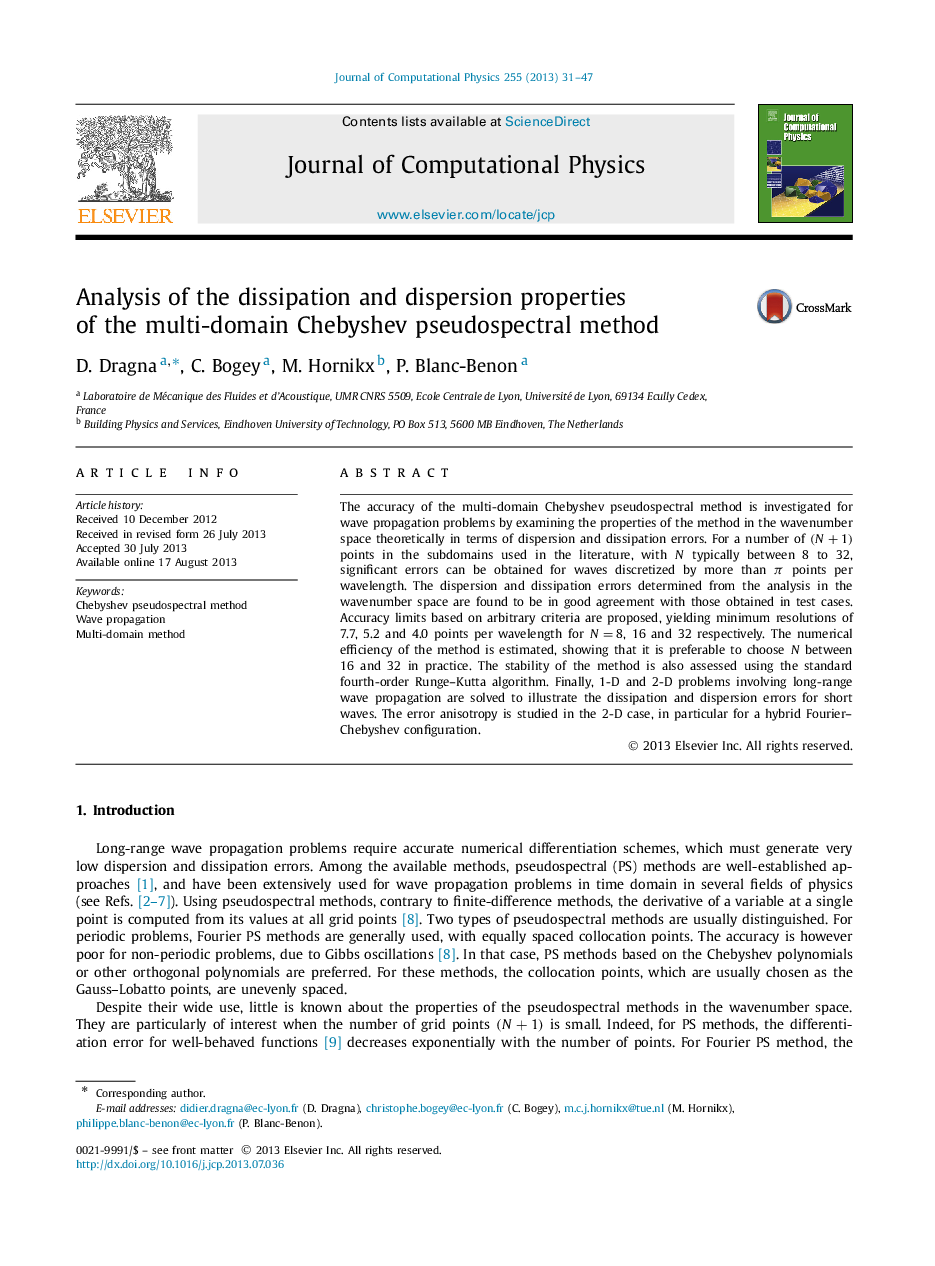| Article ID | Journal | Published Year | Pages | File Type |
|---|---|---|---|---|
| 6933284 | Journal of Computational Physics | 2013 | 17 Pages |
Abstract
The accuracy of the multi-domain Chebyshev pseudospectral method is investigated for wave propagation problems by examining the properties of the method in the wavenumber space theoretically in terms of dispersion and dissipation errors. For a number of (N+1) points in the subdomains used in the literature, with N typically between 8 to 32, significant errors can be obtained for waves discretized by more than Ï points per wavelength. The dispersion and dissipation errors determined from the analysis in the wavenumber space are found to be in good agreement with those obtained in test cases. Accuracy limits based on arbitrary criteria are proposed, yielding minimum resolutions of 7.7, 5.2 and 4.0 points per wavelength for N=8, 16 and 32 respectively. The numerical efficiency of the method is estimated, showing that it is preferable to choose N between 16 and 32 in practice. The stability of the method is also assessed using the standard fourth-order Runge-Kutta algorithm. Finally, 1-D and 2-D problems involving long-range wave propagation are solved to illustrate the dissipation and dispersion errors for short waves. The error anisotropy is studied in the 2-D case, in particular for a hybrid Fourier-Chebyshev configuration.
Related Topics
Physical Sciences and Engineering
Computer Science
Computer Science Applications
Authors
D. Dragna, C. Bogey, M. Hornikx, P. Blanc-Benon,
